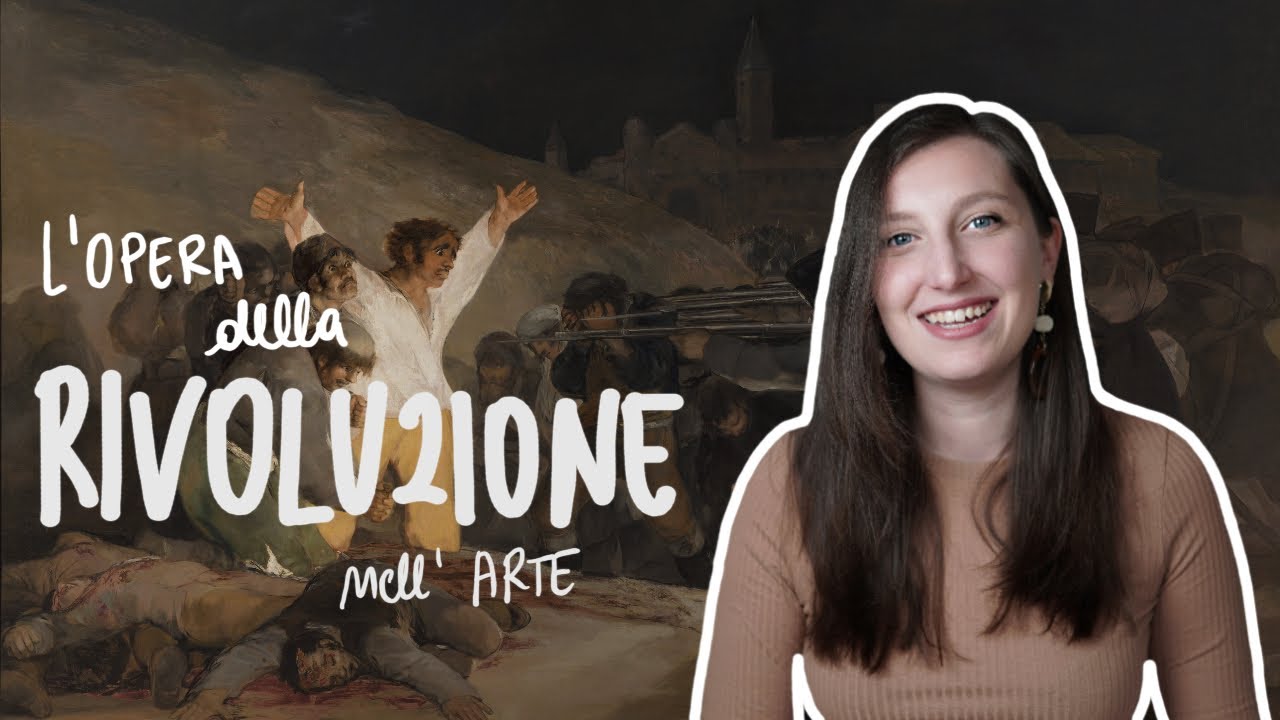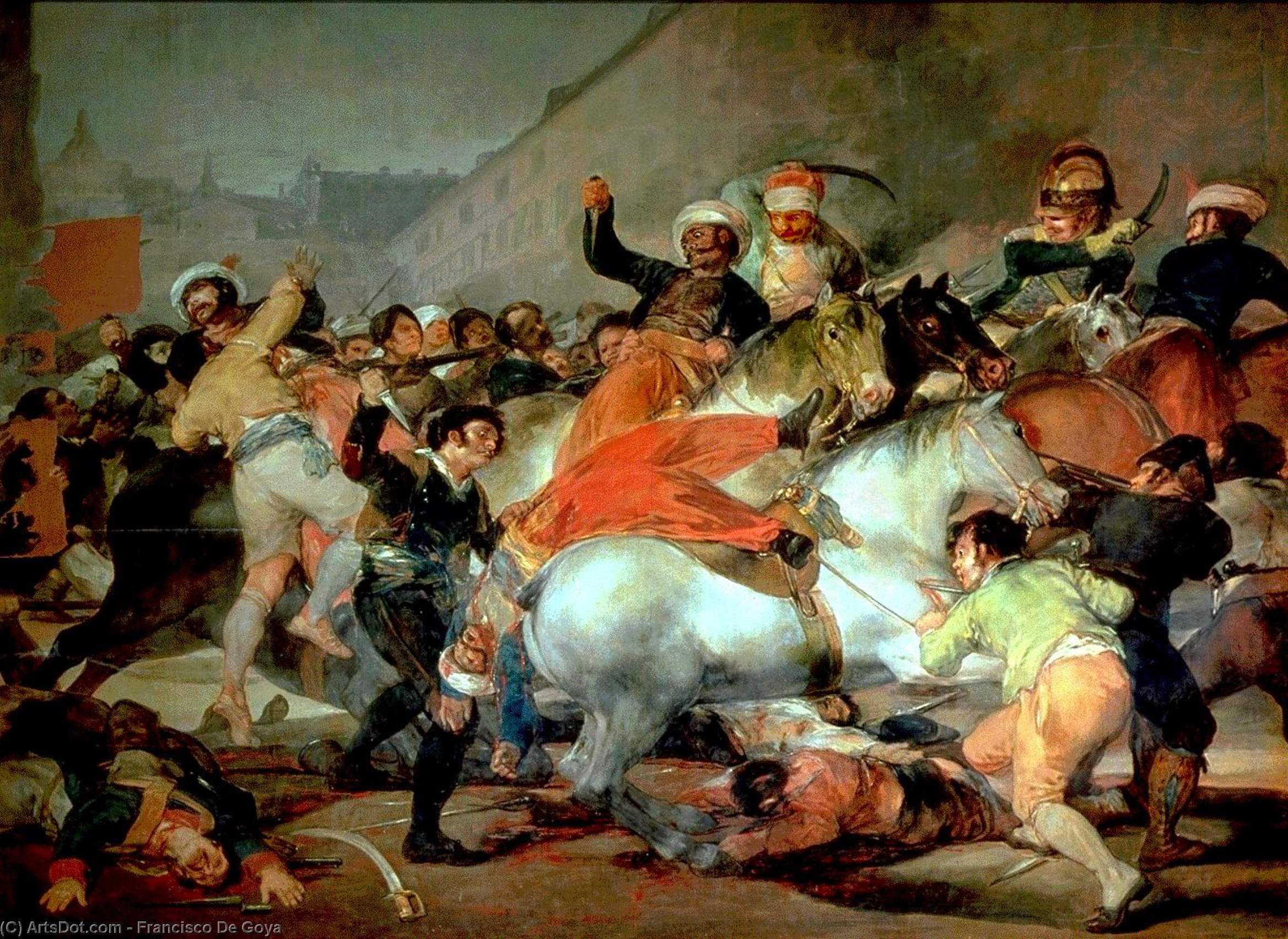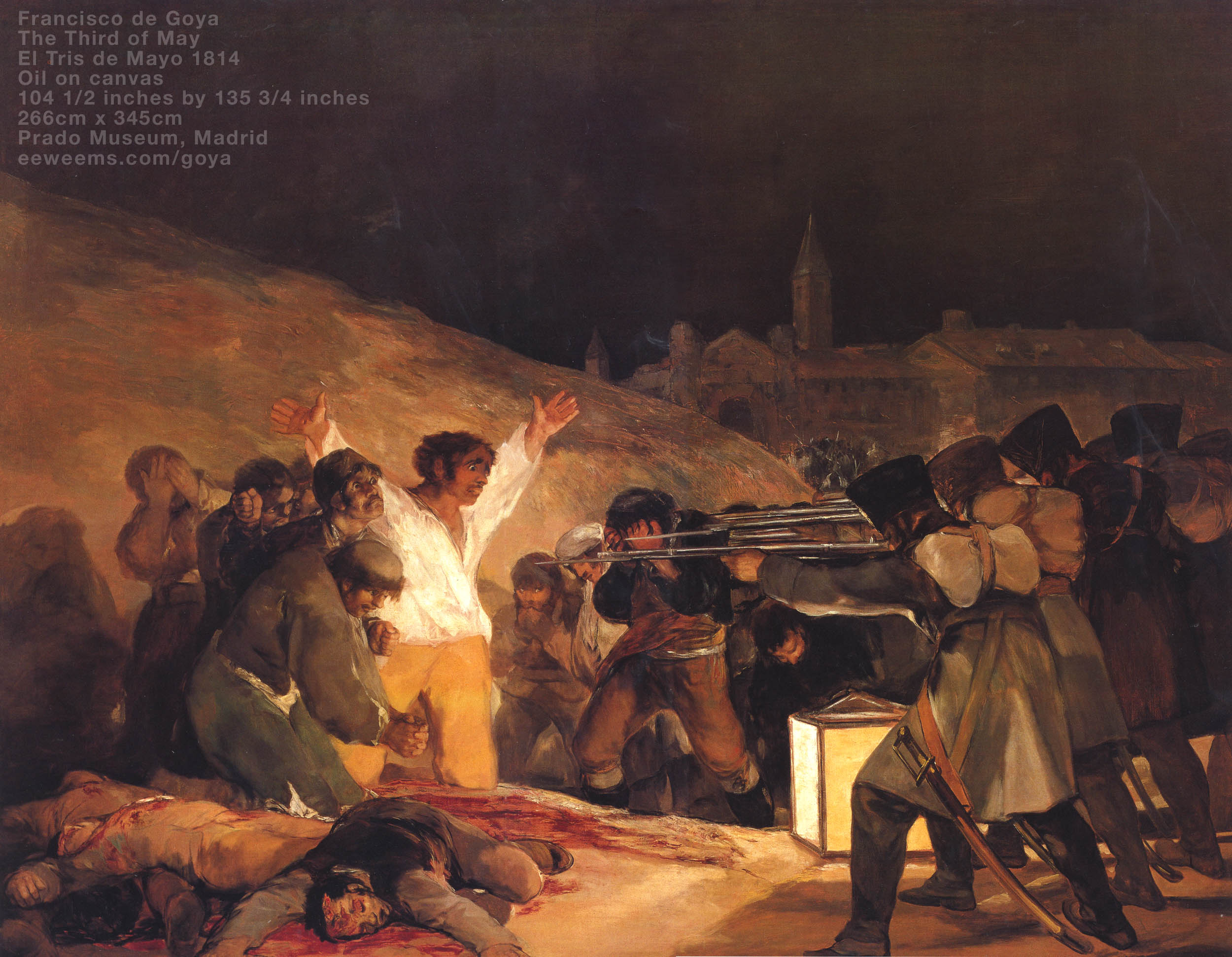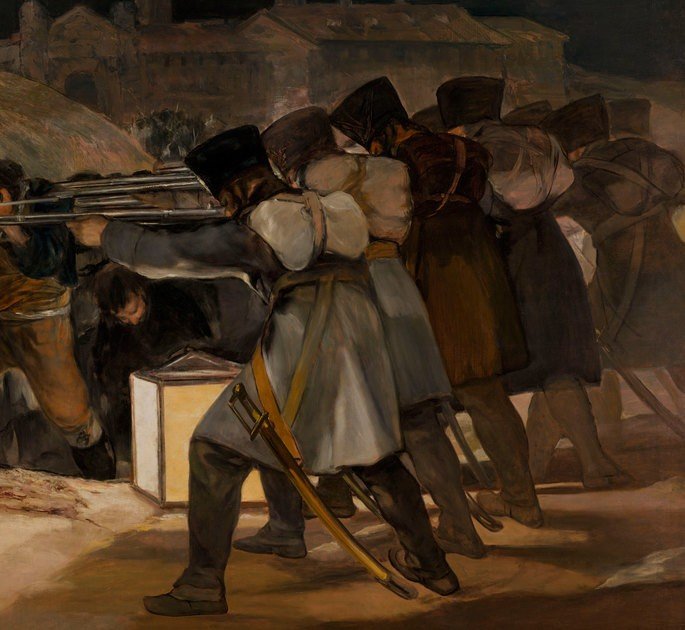
3 maggio 1808 di Goya analisi
Il 3 Maggio 1808 : esecuzione dei difensori di Madrid è un dipinto a olio su tela di 2 metri e 66 cm x 3 metri e 45, realizzato da Francisco Goya. L'opera è.

Il 3 maggio 1808 di Francisco Goya [ANALISI e descrizione] L'opera più
Francisco de Goya (1746-1828) was undoubtedly the greatest painter of 18th century Spain.. 1808 (painted in 1814). The riot took place on 2nd May and was swiftly put down by Joachim Murat, a.

The Second of May, 1808 at the Puerta del Sol Francisco De Goya
A depiction of the execution of patriots from Madrid by a firing squad from Napoleon´s army in reprisal for their uprising against the French occupation on the second of May, 1808. The French soldiers are at the right of the composition, with their backs to the viewer. They aim their rifles at the Madrilenes who are to die.

3 maggio 1808 di Goya analisi
The Third of May 1808 (also known as El tres de mayo de 1808 en Madrid or Los fusilamientos de la montaña del Príncipe Pío, [2] or Los fusilamientos del tres de mayo) [1] is a painting completed in 1814 by the Spanish painter Francisco Goya, now in the Museo del Prado, Madrid.

3 maggio 1808 di Goya analisi
NEW YORK STATE — Nearly a dozen alleged mafia members from Long Island were arrested Tuesday as part of a large investigation into organized crime by the federal government. The 19-count.

Goya Fucilazione del 3 maggio 1808 1 di 2 YouTube
Il 3 maggio 1808, in particolare, passò alla storia come un giorno estremamente sanguinoso, e negli anni successivi, divenne il simbolo del massacro portato da quella guerra.

Francisco de Goya The Third of May
Francisco de Goya 's The Third of May 1808 —sometimes described as the greatest anti-war painting, the first modern work of art, and the artist's unquestioned masterpiece—spent most of its first 40 years in storage. Commissioned in 1814 by the provisional Spanish government, it was coolly received and later transferred to the Prado.

3 maggio 1808 di Goya analisi
Analisi Descrizione di 3 maggio 1808 di Francisco Goya La scena è totalmente immersa nel buio. Solamente una lanterna illumina il buio della sera. La luce è diretta verso un ribelle, condannato a morte. Si tratta di un povero contadino che, dignitosamente, affronta il suo sacrificio a favore della libertà.

Goya El Tres de Mayo Prado
Francisco José de Goya y Lucientes, a Spanish artist, was born on March 30, 1746 and died on April 16, 1828. Usually referred to as Francisco de Goya, this artist grew up in the town called Fuendetodos, Aragon, Spain.

Fusilamientos del 3 de mayo Ap spanish, Spanish culture, Spanish art
Il 3 maggio 1808 di Francisco Goya [ANALISI e descrizione] L'opera più rivoluzionaria della storia Watch on Il 3 maggio 1808 di Goya. Questa stupenda opera del 1814 è conservata al Museo Prado di Madrid. E racconta del destino crudele di un gruppo di civili.

Cuadro El 3 de mayo de 1808 en Madrid de Goya historia, análisis y
The present work depicts the popular riot of 2 May, 1808, when the people of Madrid attacked the Mamelukes —Turkish soliders in Napolean´s French Army— who were taking the younger children of Carlos IV and Maria Luisa to France. This was the beginning of the War for Independence. See work in timeline Tags 1814 Canvas Oil Painting RDF RDF Multimedia

Francisco Goya Le fucilazioni del 3 Maggio 1808 YouTube
The Third of May 1808, oil painting by Spanish artist Francisco Goya that was completed in 1814. It evokes the horrors of war with great emotional force and is stylistically revolutionary.. On March 17, 1808, the Revolt of Aranjuez ended the reign of King Charles IV of Spain and his wife, María Luisa, the royal patrons of Goya. Charles's son, Ferdinand VII, was made king.

Francisco Goya's Vision Of War Is Powerful And Urgent The Economist
Biografia e opere di Francisco Goya, pittore spagnolo e pioniere dell'arte moderna autore - tra gli altri - de Il 3 maggio 1808, Saturno e le Pitture nere. Laura Morazzini Devi conoscere.

El tres de mayo de 1808 en Madrid está una pintura de ejecucións de las
The Second of May 1808 (1814) by Francisco Goya; Francisco de Goya, CC BY-SA 3.0, via Wikimedia Commons. Goya's Third of May 1808 is regarded as groundbreaking due to its presentation, content, and sheer emotional force, which marked a huge departure from the usual representations of war that focused on the heroes and great deeds.Instead, we see a realistic and dark representation of the.

3 maggio 1808 di Goya analisi
Il 3 maggio 1808 di Goya. Goya's May 3, 1808 is one of the most celebrated masterpieces of the great Spanish painter of the 18th and 19th centuries. This work depicts a crucial event in Spanish history: the Revolt of May 2, 1808, an episode that took place during the Napoleonic occupation of Spain.. Goya's May 3, 1808 is an extraordinary.

EBL Francisco Goya The 3rd of May, 1808
Although Goya's Second of May is a tour de force of twisting bodies and charging horses reminiscent of Leonardo's Battle of Anghiari, his The Third of May, 1808 in Madrid is acclaimed as one of the great paintings of all time, and has even been called the world's first modern painting.